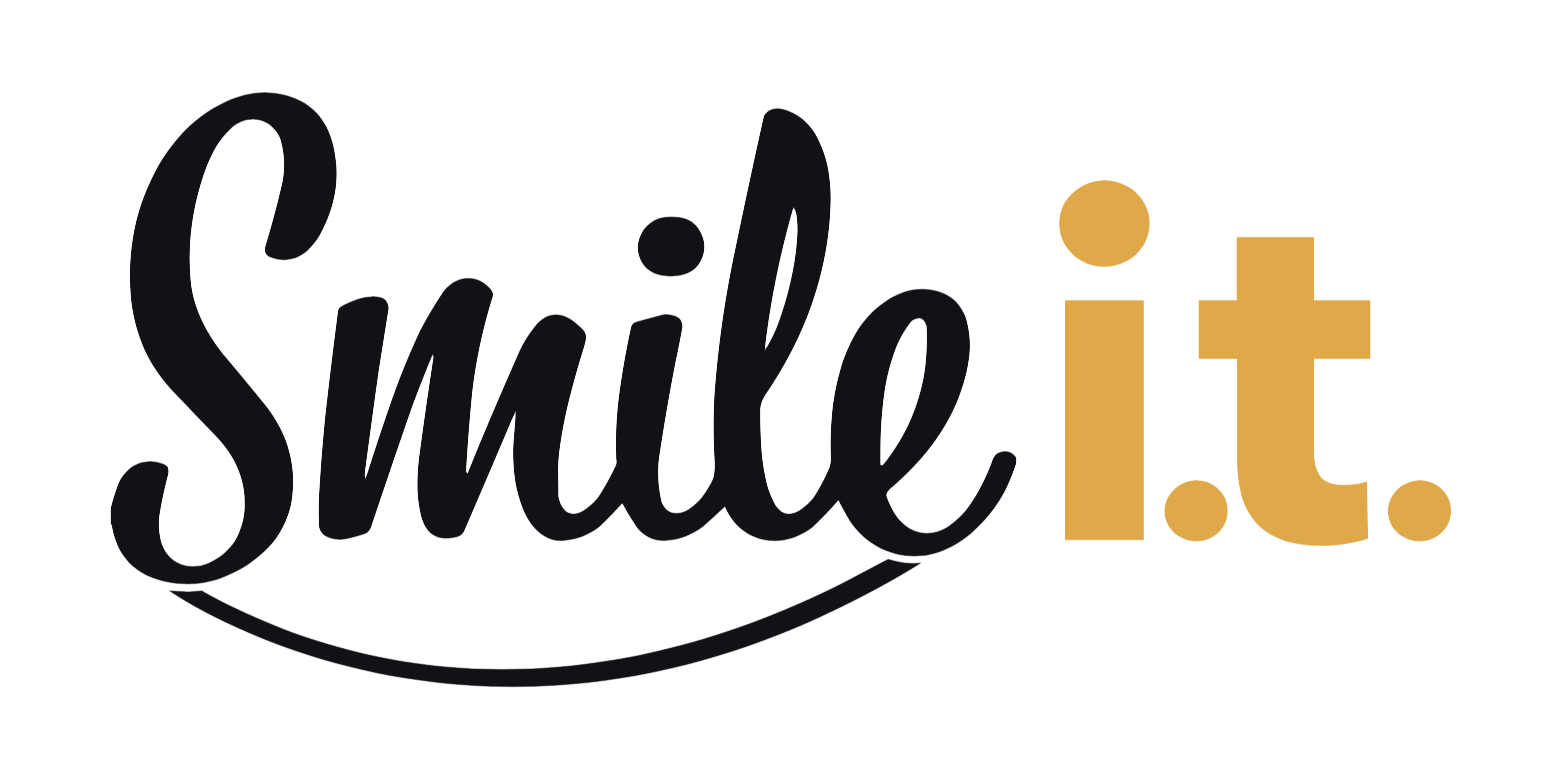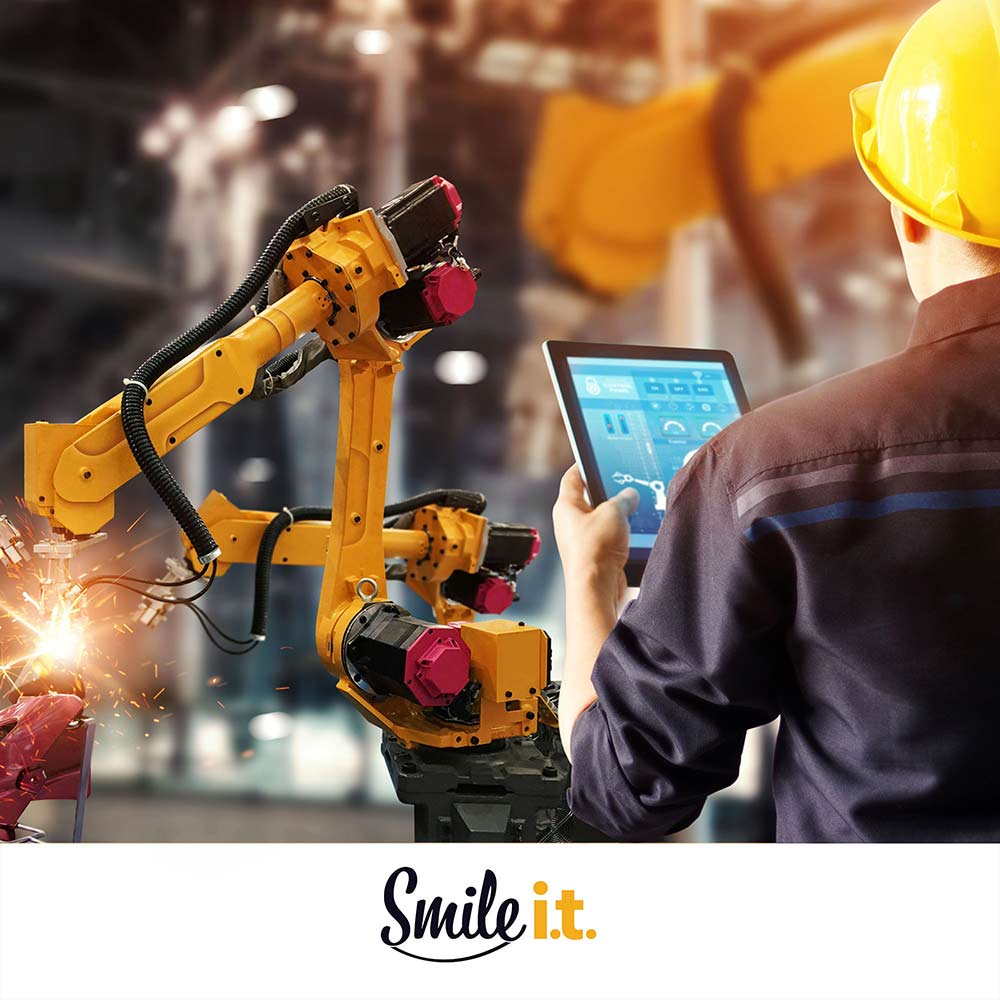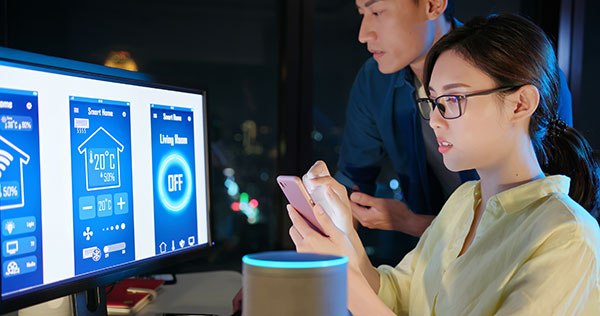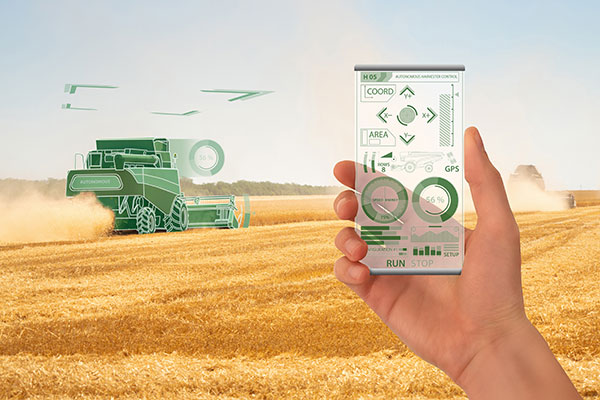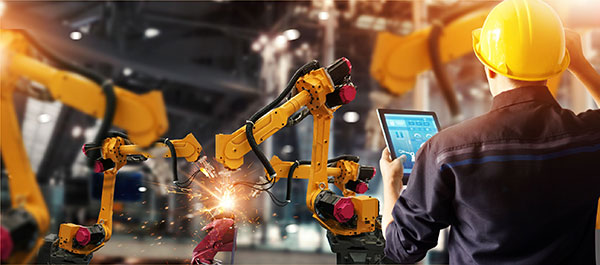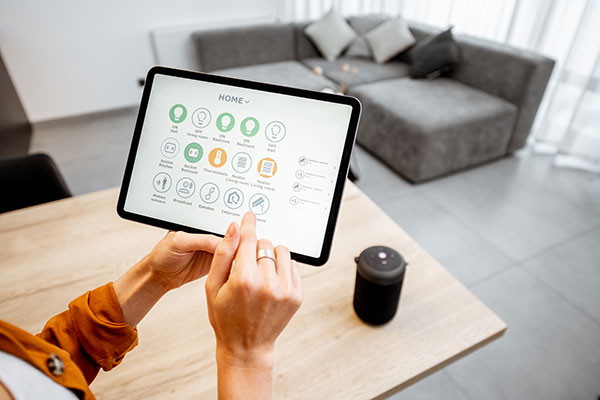The conversation around ‘Internet of Things (IoT)’ in Brisbane and Australia is growing as it becomes more prevalent in our businesses and homes… but do you know what it means? Or are you that person whose eyes glaze over when IoT is mentioned faster than Alexa can find a hit song by Rihanna? Chances are you make use of the Internet of Things everyday, whatever part of Australia you’re in. It’s had a huge impact and is only going to get more important as our lives become further intertwined with technology. Having a basic grasp of what IoT is will help you be a part of that conversation.
Internet of Things Definition
The Internet of Things is an extension of the internet into physical devices, basically referring to any machine, device or piece of equipment that’s connected to the internet. These devices not only collect data, they can send and receive it too, essentially ‘talking’ over their connection without any human input. IoT is all about connected devices, the networks they’re a part of and the data they collect.
When combined with systems of automation, the data gathered from the devices can be analysed and used to create an action. This is an extremely powerful part of IoT, because informed automated actions relieve the work load of humans, boosting operational efficiency. This ability to streamline workflows and reduce the burden on manpower has prompted the massive growth surge of the Internet of Things over the last few years.
The Internet of Things in Australia: Where Do We Use It?
IoT is everywhere, from our workplaces and in our homes. Many different industries across the country are incorporating devices whose functionality depends on IoT. So depending on what line of work you’re in, there’s a high chance you’ve encountered it in your factory, office or field work. Let’s look at some examples of how it’s used.
Internet of Things in the Office
While many offices might not be extremely machined-oriented, there are still numerous applications where IoT contributes to a more efficient workplace.
Intelligent printers can monitor ink and paper levels, automatically placing orders with suppliers when stocks run low. No human involvement required! Thermostats can dynamically control the temperature of different zones in the office to keep working conditions optimised. Smart lighting systems can adjust their own brightness and colour balance during the day to minimise eye strain. And if you like coffee, a connected IoT coffee machine will ensure stocks never run out!
Internet of Things in Agriculture
Networks of interconnected sensors managing variables such as soil moisture levels, nutrients and temperature are proving invaluable to producing higher agricultural yields.
‘Precision farming’ has made practices more scientific and controlled through the generation of data that is then used in decision making. Irrigation management, livestock management and machinery tracking has become more efficient and fruitful. Smart greenhouses can adjust climate conditions to be perfectly suited to a particular crop. Drones equipped with advanced sensors will detect areas of crops in poor health, and thanks to the data collated be able to recommend an appropriate course of action. As well as improved productivity, IoT has helped reduced chemical waste in agriculture too.
Internet of Things in Manufacturing
Manufacturing is possible the main vertical for the use of IoT, with it helping drive a massive digital transformation within the industry.
Equipment can be managed and monitored remotely within specific parameters to optimise energy use. Large amounts of data can be collated and analysed to improve quality outcomes. Maintenance alerts can be set to ensure continuity of production. Flow monitoring allows waste to be minimised and unnecessary work to be avoided. And that’s just scratching the surface – the future of manufacturing and IoT are definitely strongly linked.
What is Home Automation? IoT in Australian Homes
As well as workplaces around Australia, IoT is all around our home environments and in everyday life. Devices like Apple Watches and Fitbits have exploded as ‘wearable tech’ has grown in popularity.
But it’s in our homes that we see the biggest advances. Fridges are able to connect to the internet and order milk when it runs low. Coffee machines get our brew exactly as we like it, when we like it. Climate controlled air conditioning keeps us comfortable no matter the season. Music can start playing through an interconnected speaker system as you enter a room, and stop when you leave. All this is called ‘home automation’.
Home automation has led to the rise of what is known as ‘Smart Homes’. An interconnected network of devices connect to a central hub through which they can be controlled. Everything from you lights to your security system can be monitored and automated using the principles of the Internet of Things.
As the tech becomes more commonplace, home automation is getting cheaper. It depends on the extent to which a home is automated – complex surveillance and security systems will cost more than simple functions like connecting a tv or sounds system. Novices can easily use inexpensive hubs like the Amazon Echo to configure their automation, and DIY kits like Arduino and Raspberry PI are made use of by enthusiasts.
How can IoT benefit my business?
There’s an incredibly long list of ways that the Internet of Things can benefit your business, whether you’re in Brisbane or anywhere in Australia. For example, Smile IT is currently putting together an Internet of Things platform for one of our clients to manage the levels of the water tanks at their eco lodge, which you can read all about here. Transport industry operatives can use sensors to geotrack goods and trucks. The temperature of storage facilities can be monitored and regulated in warehouse and cold storage environments. Retailers can utilise automatic inventory restocking alerts. Online companies can use IoT to analyse on-web behaviour of their customers. The list goes on!
If you have any questions about the Internet of Things and how you can implement it into your Australian business, why not get in touch with Smile IT? We’re a Brisbane-based digital solutions provider, and our specialist consulting service would love to help you use the best and most advanced tech available.
When he’s not writing tech articles or turning IT startups into established and consistent managed service providers, Peter Drummond can be found kitesurfing on the Gold Coast or hanging out with his family!
